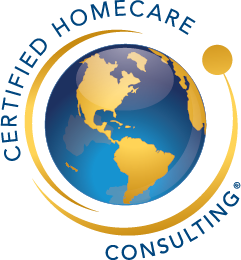Home Health Care License in Ohio
There are home health care license requirement in Ohio and there are other requirements you must follow if you want to start a home health care business in Ohio.


Home Health Care License Requirements and Startup Process in Ohio
First impressions are the key to developing good consumer relations. That is why a relatable and unique name is extremely important when starting a Home Health Care Agency. Avoid using common names or the use of words such as: always, best, caring, first, and hands (to name a few). Deciding which name is best for your company is ultimately your choice and making this decision can be difficult if you are not flexible. As with many great ideas, there is a chance someone could have come up with it first. Transparency is a great marketing strategy for your Home Health Care Agency. Make sure to keep it simple and portray what your business actually does. You do not want someone thinking your business is doing something it is not. Researching to see if a name is available is very important as you do not want to be the subject of a lawsuit, nor do you want to choose something that is too similar to another local business as it can be rejected by the Secretary of State in your State if the name is too similar.
Determine which option is best suited to the wants and needs of the owner(s) of the business. This is a huge decision because whichever choice is made here will determine how the business and the owner(s) are taxed annually. Filing the business under either of these options will determine the additional fees and filings that will be required to keep your home health care business in good standing with the State of Ohio. There are many factors that can come into play when choosing, which is why most people team up with a professional (i.e. Lawyer, consultant, or accountant) to weigh their options out about taxation and other factors.
Strive for success and make your dreams a reality by developing a strategy to get your home health care business off the ground. Develop a budget for your home health care agency that makes sense. This should include office space, payroll, marketing, and other miscellaneous fees. Sourcing funds is a great start as there are fees and other costs that will require a decent amount of startup capital for your home health care agency to gain momentum. You should be able to operate your home health care business for at least 12-18 months. Determining the full scope of services that your home health care agency would like to offer is important. Something as simple as not delivering a specific service or wanting to deliver alternate services could affect what license (i.e. companion care license, personal care license, home care license, home health care license, etc.) is needed and how long the process will take. Researching the local competition’s pricing and the census of the targeted demographic you are trying to serve will greatly help your strategy.
The State of Ohio prefers a tangible office space to operate a Home Health Care Agency that is ADA compliant (P.O. Boxes are not acceptable addresses). There is usually a distance requirement for all Home Health Agencies which means you can only serve patients within the designated service area without having to open another agency.
Home Health Care Agencies will have to undergo a 12-18-month process after licensure to receive reimbursement or payments of any kind from Medicare (if it is available to be applied for as this varies state to state). Medicaid is currently available in the state of Ohio for Home Health Agencies. Private insurances often have stipulations that a home care or home health care agency must be Medicare certified to participate in their programs, in some cases, Private Duty Accreditation can be achieved in lieu of Medicare Accreditation. Every Agency that starts out is Private Pay and develops alternate payment sources after they are properly credentialed.
Home Health Care Agencies have strict requirements set by Center for Medicare / Medicaid Services for the state of Ohio for the staff which are not negotiable due to the factors of skill and education required to deliver quality care. Owners and key staff must be able to pass a background checking process in the State of Ohio. These requirements are described in the Conditions of Participation and State Operations Manual Appendix B. These are regulations to let perspective owners know how to properly run this type of business and get licensed to protect potential patients. Researching the proper regulations is a must in this industry as the state still follows the federal guidelines known as conditions of participation.
The State of Ohio requires personnel to be supervised. The following supervisory roles must meet the following educational requirements (§ 484.115) Condition of participation: Personnel qualifications.
Administrator and Alternate Administrator
(1) For individuals that began employment with the HHA prior to July 13, 2017, a person who:
(i) Is a licensed physician;
(ii) Is a registered nurse; or
(iii) Has training and experience in health service administration and at least 1 year of supervisory administrative experience in home health care or a related health care program.
(2) For individuals that begin employment with an HHA on or after July 13, 2017, a person who:
(i) Is a licensed physician, a registered nurse, or holds an undergraduate
degree; and
(ii) Has experience in health service administration, with at least 1 year of supervisory or administrative experience in home health care or a related health care program.
Director of Nursing and Alternate Director of Nursing also known as a Clinical Manager
(1) A person who is a licensed physician, physical therapist, speech-language pathologist, occupational therapist, audiologist, social worker, or registered nurse.
Secretary of State Formation, Employer Identification Number, State Tax ID, and a National Provider Identification number will be needed to get your home care business started. You will need a tangible address to start the agency (P.O. Boxes are not acceptable). This is where a little help from a home health care business consultant will come in handy. We do all of this for you
Per CMS guidelines and the State of Ohio requires the following for home health care agencies in Ohio:
General/Professional liability, Workman’s Compensation and a surety bond for $50,000.
Application – The State of Ohio requires an application to the Department of Health accompanied by a fee of $250. The key staff and owners must show proof of background checks and educational requirements in the application. The Home Health application needs to be accompanied with Home Health Care Policies and other key paperwork proving regulation compliance. Processing time for applications is up to 3-6 Months depending on their work loads after the application is submitted.
Pre-License Desk Survey: There is a survey prior to the agency receiving a Full license. Our Certified team has extensive experience with survey preparations to ensure the agency get’s the license they applied for and handle any corrections that may need to be made prior to opening.
License – The full Home Health License is granted for a set time but all application and licenses must be renewed every year and then a survey will be required after renewal application is submitted. This is a mandatory requirement and cannot be bypassed. Preparing for this fast paced task can be very difficult for a new business owner to navigate that why we are ready to help. Please give us a call today.
The county or township may have specific requirements that need to be met with an application for a local license to conduct business in that area. Having an optimal location and the proper office set is important. Make sure all of the proper licenses are in a conspicuous areas.
Your home health care business will need staff in order to open its doors in Ohio the key staff/managers need to be identified in the initial process. Hiring the staff and making sure they get paid is an important part of starting your home health care business. This process can be done by the home health care business owners or a professional equipped to handle these situations. The state of Ohio has very specific laws associated with being an employer. This can make or break the agency if they do not follow the letter of the law.
Home Health Agencies once licensed are eligible to start enrollment processes for insurances the two most popular are Medicare and Medicaid which are state and federally funded. Medicare is a federal insurance that is for seniors over the age of 65 and individuals who are disabled. Medicaid is the state assisted insurance for all ages and disabilities to reduce costs to all individuals who otherwise could not afford health insurance. Medicaid in Ohio for Home Health Agencies is currently accepting provider application. Center for Medicare & Medicaid Services (CMS) regulate both and there are specific requirements and regulations that must be met and followed. These government insurance enrollments can be very difficult to navigate and can take 11-18 months before a Home Health Agency receives a billing number for reimbursement on patient claims, if the insurance program is available for enrollment. Private Insurances such as Blue Cross Blue Shield, AETNA, Tufts, United Healthcare, and other PPO / HMO plans can also be used for reimbursement if the Home Health Agency has enrolled with each specified insurance company. All insurances will have separate requirements needed for enrollment.
Home Health Agency requirements for enrollment in insurance programs may also include a certification that is issued from a nationally recognized accreditation organization (AO) to participate in their program. Certification for the home health agency not only validated that the agency knows what they are doing but can assure the family and patient a sense of comfort they are in capable hands. Assuring quality care with proof of certification makes insurance companies feel the same and in most cases is part of the requirement for the Home Health Agency to do business with them.
Accreditation requires that a great infrastructure be present with the correct key staff, supporting policies, business paperwork, and an ADA Compliant Office Space. Creating this optimal environment can be very difficult without proper direction and insight. Accreditation Organizations such as Community Health Accreditation Partner (CHAP) or Accreditation Commission for Health Care (ACHC) have their own fees for their services and processes. Depending on which level of accreditation that fits the need of the Home Health Agency these fees and processes may vary. Certified Home Health Care Consultants and seasoned registered nurses are standing by with over 10+ Years’ experience to help make any Home Health Agency survey ready and deliver sage guidance through this process.
Ohio Resources for Starting your Home Health Care Business


